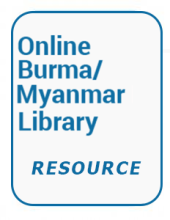Land Library Search
Through our robust search engine, you can search for any item of the over 73,000 highly curated resources in the Land Library.
If you would like to find an overview of what is possible, feel free to peruse the Search Guide.
/ library resources
Showing items 1 through 9 of 31.XVI Biennial Conference of the IASC, Utrecht July 2017
Track 8: What Role can the Commons play in the Struggle for Land Rights, in particular of
The present study on Myanmar focuses on customary tenure among upland ethnic
nationalities, where colonial and state land administration systems have been poorly integrated,
allowing customary systems to be sustained over time. Much like under British colonial power, the
Abstract: "Global economic change and policy interventions
are driving transitions from long-fallow swidden (LFS)
systems to alternative land uses in Southeast Asia’s uplands.
This study presents a systematic review of how these
Executive summary:
"In January 2016 the government adopted a National Land Use Policy, which included the recognition
of customary land management practices. While this is a welcome first step in the necessary
Land Core Group Shifting Cultivation Meeting
Yangon, Myanmar
This document highlights, in English and Burmese, some key chapters of the National Land Use Policy: Objectives...Grants and Leases of Land at the Disposal of Government...Procedures related to Land Acquisition, Relocation, Compensation, Rehabilitation and Restitution...Land Use Rights of the Eth
Paper prepared for presentation at the 2016 WORLD BANK CONFERENCE ON LAND AND POVERTY, The World Bank - Washington DC, March 14-18, 2016
Key findings:
"There is no landlessness in the village
and the shifting cultivation land is divided
equitably for farming. However,
there is the concern that part of their
shifting cultivation area has been classified
as reserved forests by MOECAF. So
Key findings:
"There is no landlessness in the village
and the land is shared equitably. The
land cannot be sold and belongs to the
community. It is the basis of their livelihood and the future of their children.

